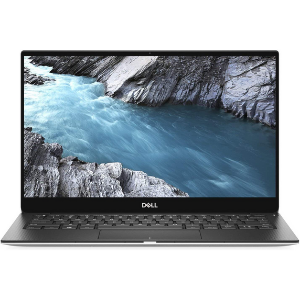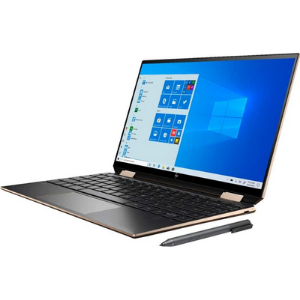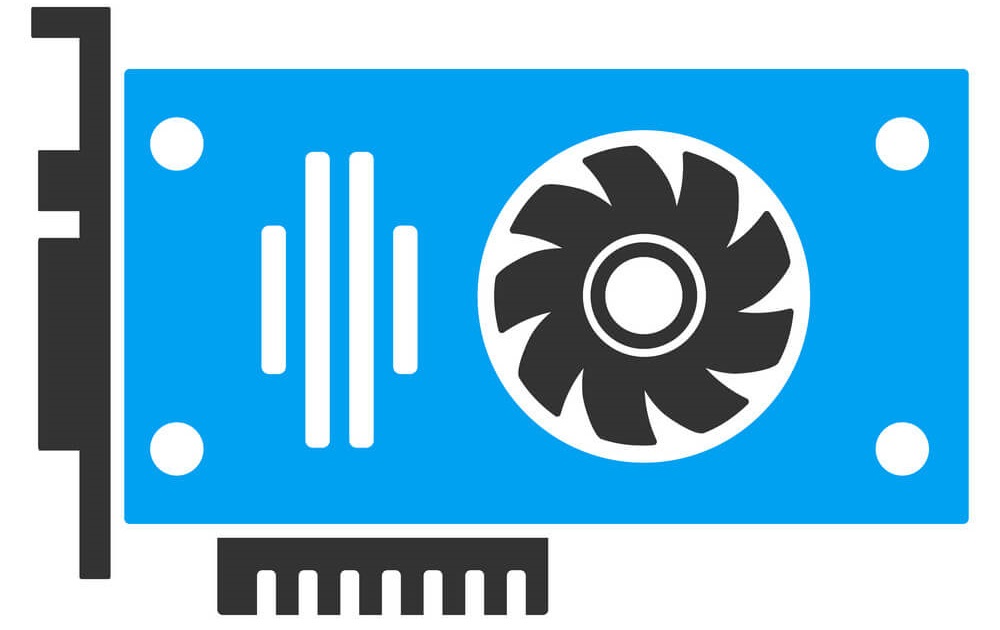
Google has a quite diverse workforce that spans software engineers, data analysts, designers, and marketing specialists. The hardware tools they employ are as varied as their roles in the company.
In this era where smartphones, gadgets, and laptops have become essential parts of the modern workplace, a question arises: which laptops do Google employees use to power their tasks, creativity, and collaborations?
We are going to explore the laptop choices of Google employees, exploring the operating systems, brands, prominent features, and future considerations that shape their computing preferences.
So, let’s have a look which laptop do Google employees use?
Google is Cutting its Costs Down: What Does It Have to Do With Laptop Policy?
In an Email statement by Ruth Porat, Google’s finance chief said they are moving to cut down their costs in the form of MacBooks to Chromebooks, less laptop replacement for employees, no free snacks, no free laundry services, and some other perks.
As of now, only Google engineers are entitled to MacBooks, while other employees have to accept Chromebooks.
It is also reported that Google is saving money by cutting on fitness classes, tape, lunches, staplers, etc. The tech company is laying off 6%—almost 12,000—of its employees globally.
Do Google Employees or Software Engineers Use MacBooks or Windows Laptops?
It is burning question asked by many IT folks and newbies. We have studied different answers from ex-employees as well, and they have answered as follows
Remember, Google engineers use MacBooks, Windows laptops, Linux laptops, and desktop machines as well. According to reports, the majority of engineers use MacBooks (Air and Pro), others in engineer roles use Windows laptops, and a few others use Linux based laptops and workstations as well.
In fact, every engineer chooses a laptop according to their requirements.
What Operating system (OS) do Google Software Engineers Use?
As we have discussed above, Google has a bunch of software engineers mandated with different roles. So they use the operating system accordingly. As they prefer MacBooks, Linux laptops / desktops, Chromebooks, and Windows laptops, they use the following OS:
- MacOS >
- For Desktops and Servers > Linux > Ubuntu Linux > Goobuntu
- Windows 10 or 11
- Linux-based Chrome OS
- Android OS and its variants
In short, Google software engineers use Linux on the desktop and macOS on the laptop. Other engineers select OS according to their needs, roles, and ease of use.
Do Google Developers Use Chromebooks?
As everyone knows, Chromebooks are primarily designed for casual work, not software development, and lack the necessary computational power and ability to perform complex tasks when needed.

That’s why Google developers don’t have a tendency to use it. Further, as mentioned earlier, Google is cutting costs by providing Chromebooks to employees who are not software engineers.
Although Google developers can use Chromebooks as a test case or test performance of specific software on Chrome OS and laptops,
What laptop Does Google Give to Employees?
Google offers free laptops to its employees according to their roles, and it could be a MacBook Air or Pro, a Windows laptop, Chromebooks, Pixelbooks, a Windows-based PC, a Linux based laptop, or tablets as well.
According to the CNBC report, engineers will get MacBooks, while other non-engineering roles who need laptops will get Google manufactured Chromebooks by default.
Google employees can use their own devices according to their needs to complete there assignments.
What new hires are made at Google?
At Google, new hires, also known as Nooglers, get a “Noogler Welcome Kit” that contains MacBook or Chromebook laptops, laptop bag, monitor, mobile phone, headphones, pen, keyboard, and mouse, coffee mug, diary, webcam, camera light, different pouches, and a hat labeled Noogler,” of course.
What else do you need?
No doubt, Google also offers a work-life balance environment. You can watch this video of Noogler unboxing all nine packages he received from Google.
Google’s Diverse Workforce and Laptop Needs
The laptop needs of Google employees vary as widely as their expertise, from software engineers crafting lines of code to marketers strategizing campaigns.
Engineers and Developers
The engineers and developers at Google are at the core of its innovation. These people are in charge of developing and improving the platforms, applications, and algorithms that drive Google’s services.
Their laptop selections often get a high-performing processor, lots of RAM, and powerful graphics card capabilities to support seamless testing, coding, and optimization procedures.
Designers and Creatives
Designers rely on laptops with vivid, high-resolution displays that properly reflect what they’ve created, from user interfaces to logos and marketing materials.
The primary considerations for designers are color accuracy, stylus compatibility for digital sketching, and effective multitasking.
Data Analysts and Scientists
Data analysts and scientists mine enormous datasets for insights that drive strategic decisions.
Their laptops require a lot of processing power and memory to run complex analytics software. Running simulations, statistical analysis, and machine learning algorithms need quick storage and multitasking capability.
Marketers and Business Professionals
They require laptops with excellent networking capabilities, such as powerful Wi-Fi connectivity and high-quality cameras. This group also prioritizes collaboration tools, presentation software, and a lightweight build for on-the-go productivity.
Remote Work and Flexibility
Laptops with powerful audio and video capabilities have become mandatory for virtual meetings and conferences. That’s why portable, lightweight laptops are popular.
It allows Google employees to move easily between home, the office, and on-site.
Specialized Roles and Teams
Google isn’t restricted to the IT industry only, it has many other departments. LIke human resources (HR), legal, and operational roles, all of them require machines that are good for their specific requirements.
Efficient document management, security features, and software suites related to their activities are given priority in these roles.
Popular Laptop Brands at Google
The laptop brand selection among Google employees often comes down to a balance between personal preferences, job role requirements, and the need for seamless integration with the tools and software used within Google.
In the way a wide range of laptop brands are found in the hallways of Google campuses and in the virtual areas.
Remember, Google does not officially endorse brands. Due to their reputation, performance, and suitability for particular job roles, a number of laptop brands have become popular choices among Google employees.
The most popular laptop brands among Google employees are some of these.
Apple
Apple’s laptops are almost always the top priority in corporate sector of IT and other industries, and the reasons are obvious.

Simply put, the stylish and elegant laptops in the MacBook lineup have a strong presence among Google employees, no doubt about that.
Because of their premium build quality, high-resolution Retina displays, and seamless integration with macOS, MacBooks are favorites among graphic designers, creative people, and developers.
For those who are already familiar with Apple’s environment, the macOS operating system provides a user-friendly and seamless experience.
Dell
Dell laptops are known for their durability, performance, and design versatility. Particularly, the XPS series is popular among professionals desiring a mix of power and portability.
All types of Google employees value Dell’s laptops for their numerous customization options and support for both Windows and Linux operating systems.

Lenovo
Lenovo’s ThinkPad series has a special place among IT professionals and software developers at Google.
ThinkPads are often chosen by Google personnel, who place a high value on productivity and security. They are renowned for their strong build quality, legendary keyboards, and numerous security measures.
These laptops are commonly associated with roles requiring complex and intensive coding, huge data analysis, and software development tasks.

Microsoft
Microsoft’s Surface lineup offers the perfect blend of innovative design and performance. Surface devices, like the Surface Laptop and Surface Pro, are popular choices for Google employees.
They are especially useful for roles that demand both creativity and productivity, as well as style and fashion statements.

HP
Hewlett-Packard (HP) laptops are popular at Google due to their diverse offerings that cater to the various requirements of software engineers and developers.

HP’s diverse laptop range appeals to a broad range of employees, including business professionals, designers, engineers, and analysts.
Their ZBook series is known for delivering performance on demanding tasks.
Customized Laptops
In some cases, Google employees might opt for customized laptops that align with their specific job requirements.
This could involve configuring laptops with upgraded components or selecting niche brands that offer specialized features.
Operating Systems: macOS vs. Windows vs. Others
Three main operating systems dominate the Google workforce: macOS, Windows, and a number of alternative possibilities.
It’s no mystery that macOS and Windows dominate Google’s working landscape, and the presence of alternative options is there as well.
MacOS: Seamlessness and Creativity
MacOS is renowned for its sophisticated aesthetic, approachable user interface, and close compatibility with Apple’s hardware.
Google employees who prefer an easy-to-use interface frequently choose macOS. The effectiveness and aesthetics of macOS appeal to designers, creatives, and developers who utilize programs like Final Cut Pro, Logic Pro, and Xcode.
The Unix-based system also appeals to engineers and programmers who require a Unix-like environment for software development.

Windows: Versatility and Compatibility
For Google employees, the Windows operating system offers a variety of laptops with varied features and pricing points.
Professionals that demand interoperability with a wide range of software, particularly that specific to Windows environments, favor Windows laptops.
Although, Windows OS is no longer very popular among software engineers, it still has a presence among many Google employees.

Linux and Other Options for Specialized Needs
A small percentage of Google’s tech-savvy employees choose alternative operating systems like Linux distributions or Unix-based computers.
Usually, laptop choices are driven by specific software requirements, developer preferences, and the desire for greater control over the computing environment.
As an alternative, Google’s own Chrome OS, found on Chromebooks, offers lightweight and browser-centric performance. It fits certain roles and specific tasks.
Chrome OS
Google’s cloud-based operating system, its seamless integration with Google Workspace apps, and its emphasis on security through automated upgrades are all gaining favor among the company’s staff.
It’s best for those job roles that primarily work on browsers most of the time and heavily rely on cloud-based tasks and tools.
Specs and Features in Demand
Google employees pick their laptops carefully according to their nature of job, responsibilities, and requirements. That’s why there are a range of specifications and features for optimal performance.
Processing Power and Memory: As everyone knows, Google has a quite diverse workforce in all departments, from complex coding to data analysis.
For engineers, developers, and data scientists who need strong multitasking and quick execution of resource-intensive activities, fast processors and lots of RAM are crucial.

Storage Capacity: Google employees who deal with large multimedia or standard files, such as video editors and designers, prioritize laptops with plenty of storage. They opt for SSDs (Solid State Drives) or NVMe based SSDs for faster data storage and access.
Graphics Performance: Tasks like visual content and design, demand strong graphics capabilities.
That’s why a dedicated GPU (Graphics Processing Unit) that Google employees have for smooth editing, rendering, and modeling is mandatory for roles like graphic designers and video editors.

Display Quality: A high-resolution, color-accurate display is essential for graphics designers, photographers, and other creative roles at Google.
So these job roles opt for laptops that have vibrant, high-contrast screens and wide color gamuts to ensure accurate visual representation.
Battery Life: When Googlers are traveling, they need laptops that can keep up with their challenging schedule.

So, laptops with extended battery life are preferred by these roles to support their productivity during long online or physical meetings, flights, or remote work sessions without continuous charging.
Portability and Build Quality: In the race for efficiency, lightweight and sleek laptops are valued by those who travel frequently or attend off-site meetings.
That’s where portability and build quality can’t be compromised. Durability is most important for laptops that might experience wear and tear over time.
Connectivity: When Googlers are on a tight schedule, they need fast communications, so fast Wi-Fi, multiple USB ports, Thunderbolt connections, and Bluetooth are essential for seamless communication, and collaboration, whether in the office or working remotely.
Webcam and Audio: Virtual meetings and remote work demand high-quality webcams and microphones. If you can’t communicate clearly due to bad audio or video aids, then it’s your fault.
Being a Noogler, clear visuals and crisp audio play a role in effective communication and collaboration.
Security Features: As Google is an internet giant, data security always remains paramount. Googlers need built-in security features like biometric authentication, a secure boot, and encrypted storage, which are crucial, especially for those who are handling sensitive information.
Future-Proofing: Google employees often seek laptop machines that can handle future software and hardware demands. Because the tech landscape is constantly evolving.
It includes considering laptop compatibility with emerging technologies and trends.
Remote Work and Connectivity: Of course, when Google employees need to collaborate virtually or distantly, they require laptops that can help them. It should have a high-quality webcam, reliable audio quality, and stable internet connectivity.
Customized Hardware: For Example, The Google Pixelbook
Sometimes employees also prefer Google’s own hardware, like the Google Pixelbook. It usually happens when they have to test an optimization. Plus, it works seamlessly with Google’s software, services, security features, and the Chrome OS.
Tech-Trends and Future Technology
Google employees are adapting to new trends as technology continues to advance.
This could include a potential shift towards ARM-based processors that offer efficiency and performance, as well as the rise of hybrid devices that can bridge the gap between laptops and tablets.
It is important for Google to continue to be adaptable and flexible in order to keep its employees well-equipped with the most recent technology.
Conclusion
In the working environement of Google, laptop isn’t just a equipment but a decision to excel while choosing a laptop accordng to role and future responsibilities.
Every Google employee chooses a laptop that contributes to its legacy of innovation and global impact. Whether it’s an engineer who is pushing the boundaries of technology with coding or any designer involved in visual identity and crafting visual narratives.
No matter what role a Google employee has, the majority prefers MacBooks, then Windows laptops, and Linux based laptops later as well.
In order to cut costs, Google is giving Chromebooks to roles other than software engineers and fewer laptop replacements, along with other reduced perks. Google developers don’t use Chromebooks except for testing any product or service.

